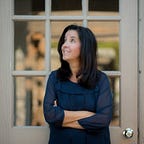Ending the Educational Juggling Act with Resilience and Kindness
“This is hard, Sue. I don’t know why I wanted to say that to you, but I did.” — Kindergarten teacher, October 2020
Teachers are juggling a combination of students who are in-person full time, in-person half time, and at home full time while streaming video into their classroom … simultaneously. Seeing this juggling act that educators are doing is anything but entertaining. I am deeply concerned.
In addition to the balls that hang in the air teachers are managing health concerns, social and emotional well being, technology, and family and caregiver outreach. These have always been important for teachers, but they are now demanding more time and attention, when there is little to spare. Then there is also the expected academic progress, never mind the stress of the political climate. So, every day teachers juggle. They scramble. They keep their eye on each precious and important ball. And they are exhausted.
I recently spoke with a school that has been teaching full classrooms of students 5 days a week since August. The message I received was, “Yes, we are doing this. But at what cost? This is not sustainable.”
“Everyone is teaching with their hair on fire!” commented another colleague as she described the current educational situation. I’ll give you a moment to pull up that image into your mind. If you are a teacher, you’re screaming, “Yes! That is exactly what is happening every day.”
I am here to say, what educators are doing is heroic. They are modeling a deep sense of resilience and kindness that will carry them and their students for decades to come.
The cast of Schitt’s Creek agrees as you can see in this video paying homage to teachers from June of 2020.
I’d like to talk about the role of resilience and kindness, and how they benefit all of us.
Resilience
Resilience isn’t taught. It is acquired. It is an invisible badge that is worn after suffering and surviving. Whether we like it or not, surviving 2020 and COVID19 means we are learning to be resilient. According to the Center on the Developing Child from Harvard University, “Resilience can help us get through and overcome hardship. But resilience is not something we’re born with — it’s built over time as the experiences we have interact with our unique, individual genetic makeup. That’s why we all respond to stress and adversity — like that from the COVID-19 pandemic — differently.”
Kindness
How would you finish this sentence: Kindness is … Take a moment to think about how you would complete that sentence and then watch this short video by www.kindness.org . The video concludes, “I know you feel better when you are kind to somebody.” In other words, kindness is contagious.
Being kind has been proven to have health benefits for all of us. According to the article How Being Kind Makes you Healthier by Chrystle Fedler, “When kindness becomes a habit we start to produce ‘happy chemicals’ like dopamine and oxytocin more consistently and that makes us feel good.”
How are resilience and kindness connected?
Gemma Leigh Roberts writes, “Kindness also relates to resilience: feeling like you can face challenges, cope, and even thrive in times of crisis. This comes down to self-belief and being kind enough to yourself to believe that you will find a way to get past obstacles — even if you don’t have the answers right now. Kinder attitudes will also give us space to focus on strengths rather than where we feel we may be going wrong.” Article: How resilience and kindness positively impact our mental wellbeing
I look forward to the other side of COVID. And, though the winter is something we are going to have to get through, I see the light on the other side. We are almost there. But to get there, we’ve got to recognize what we are going through as significant, and allow ourselves grace. By building resilience, and approaching the world with kindness, perhaps we can snuff out that hair that is on fire, put down some of those balls as we accept what we can and can’t do, and then lend a hand to a fellow juggler.
To all educators: I support you. I see you. And I am with you every step of the way. And know that THIS is not forever.
